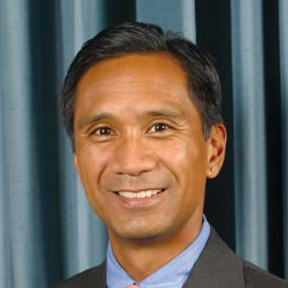It has now been more than seven years since the September 11 terrorist attacks. Every year is an opportunity to reflect on that tragic day and remember those who lost their lives at the World Trade Center, the Pentagon, and in Shanksville, PA. The intervening years should also be used to examine how 9/11 has changed us. The day after the attacks, President Bush promised “we will not allow this enemy to win the war by changing our way of life or restricting our freedoms.” However, the reality is that we have sacrificed liberty for perceived security.
Consider what happened to Raed Jarrar, an architect of Arabic descent married to an American citizen. In August 2006, Jarrar—a political activist with the Quaker-affiliated American Friends Service Committee—attempted to board a JetBlue flight from New York’s JFK Airport bound for Oakland, CA. TSA and JetBlue would not let him board because he was wearing a t-shirt that read “We will not be silent” in both Arabic and English—a phrase coined by The White Rose, a non-violent resistance group in Nazi Germany that called for active opposition to the Hitler regime.
Jarrar was told that wearing a t-shirt with Arabic script in an airport is like going to a bank with a t-shirt that reads “I am a robber.” Jarrar was asked to turn his t-shirt inside out but refused to so do because it would be “like a punishment for something I have not done.” He was allowed to board his flight only after agreeing to wear another t-shirt over his allegedly threatening t-shirt as a compromise to avoid missing his flight.
The First Amendment of the U.S. Constitution clearly states that “Congress shall make no law ... abridging the freedom of speech,” and Raed Jarrar’s t-shirt was clearly an expression of free speech demonstrating opposition to the war in Iraq. The fact that the slogan on his t-shirt was in Arabic and that Jarrar’s ethnic heritage is Arabic should not have been reasons to consider him a terrorist threat—especially if he had otherwise passed muster through airport security. So despite President Bush’s claim not to allow the 9/11 terrorists to restrict our freedoms, that is unambiguously what happened to Raed Jarrar. And seemingly lost on the people who detained Jarrar was his comment to them: “I grew up under authoritarian governments in the Middle East, and one of the reasons I chose to move to the U.S. was that I don’t want an officer to make me change my t-shirt.”
Moreover, Jarrar’s treatment must be contrasted with the Bush administration’s policy of seeking to democratize the Islamic world. How can U.S. rhetoric about the virtues of democracy be believed if we are not willing to uphold a fundamental principle of our own democracy? And why should Muslims have any faith in America if we are willing to cast aside the First Amendment simply because the person in question is Muslim
To add insult to injury, even after agreeing to a compromise Jarrar was not allowed to sit in his original seat at the front of the plane (3A) and was re-issued a boarding pass for the back of the plane (24A). The implication is that it was not appropriate for Jarrar to sit near the cockpit—yet he would not (and should not) have been allowed to board the plane if he was considered a threat.
Another explanation for moving Jarrar is that it was for his own safety because the other passengers felt threatened by him—again, despite clearing security. If that was the case, then it is even more troubling to think that Americans might engage in vigilantism against someone already determined not to be a threat; in effect, mimicking the Bush Doctrine and the misguided decision to invade Iraq—which would be a sad commentary of how 9/11 has changed us. The more obsessed we become with trying to achieve security, the more likely it is we will suffer the fate of Benjamin Franklin’s admonition: “They who would give up an essential liberty for temporary security, deserve neither liberty or security.”







